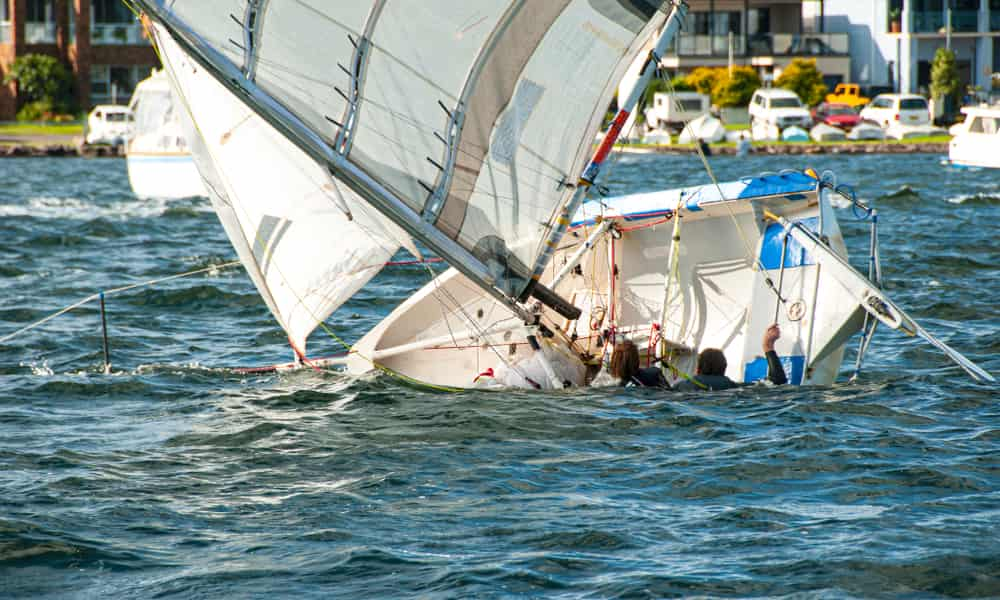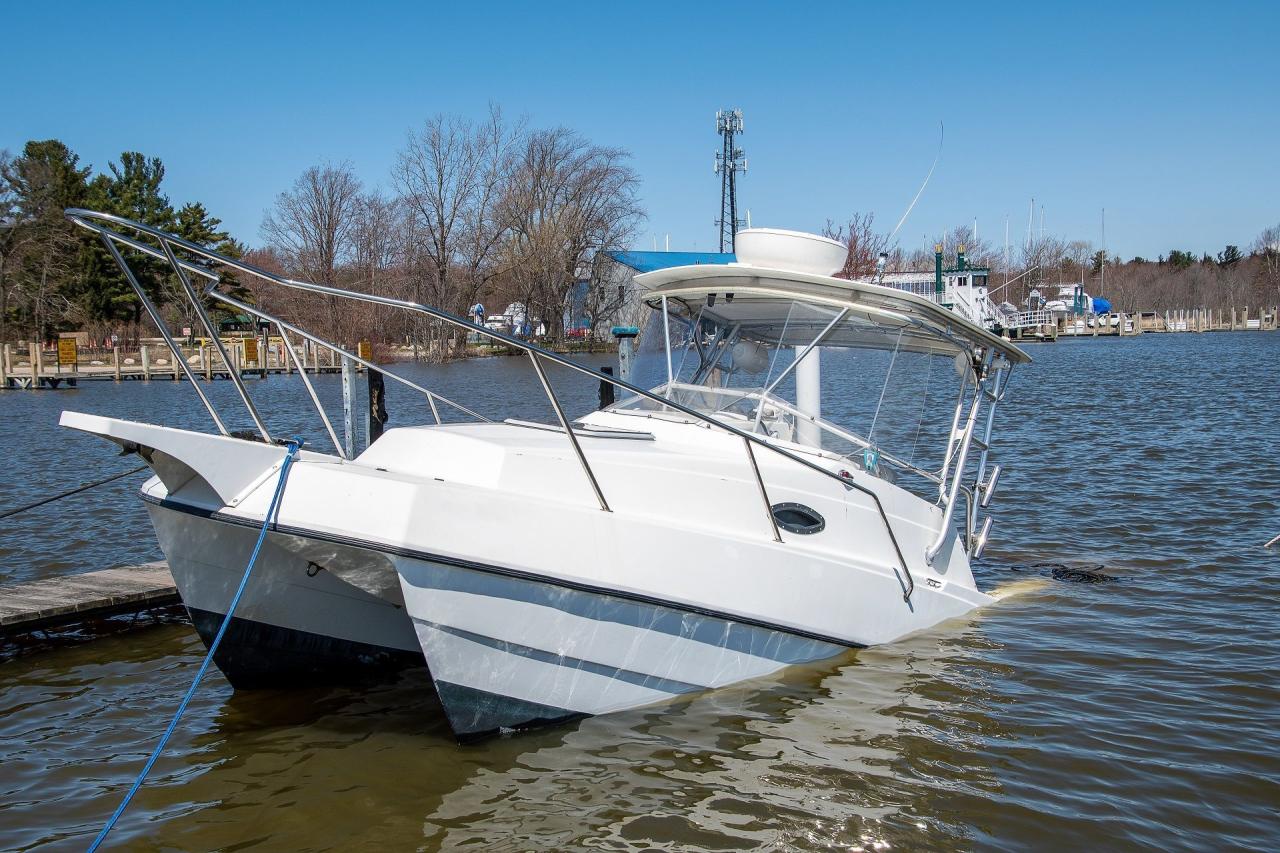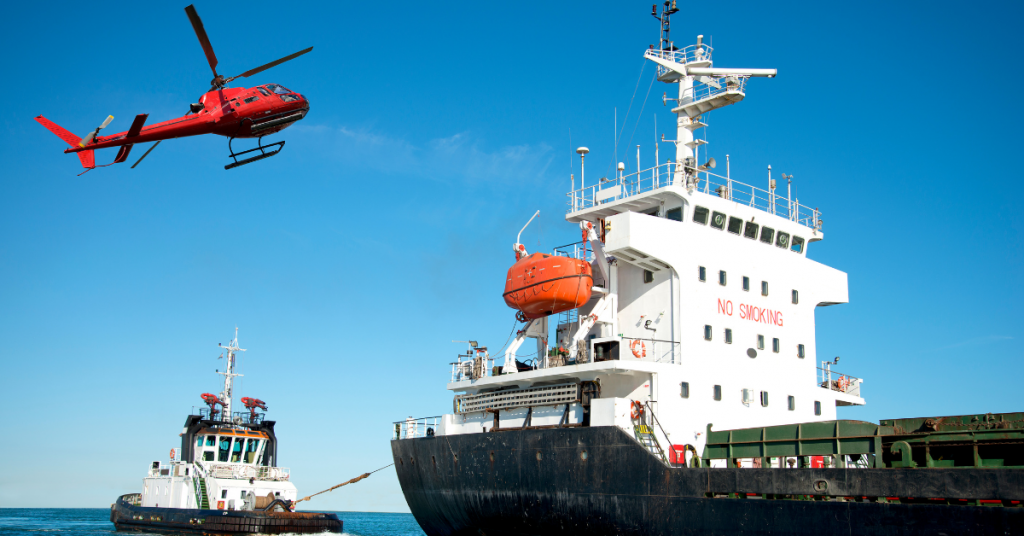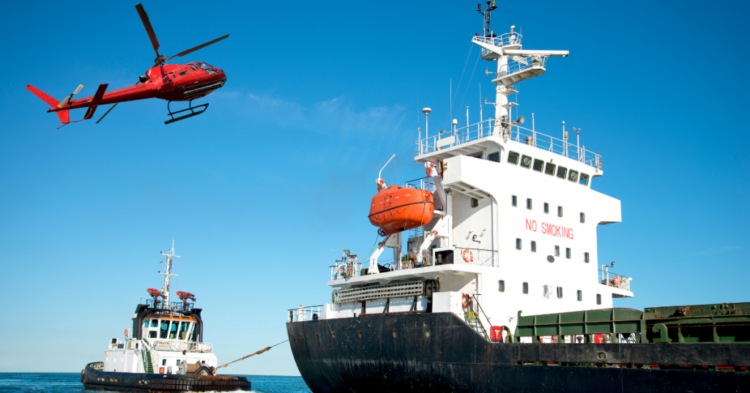
Boat Accident Overview
Boat accidents can occur due to various factors, including operator error, mechanical failure, weather conditions, and substance impairment. Consequences range from minor injuries to fatalities, as well as property damage and environmental impact.
According to the U.S. Coast Guard, there were over 4,000 reported recreational boating accidents in 2021, resulting in 658 deaths. Common causes include collisions with other boats or objects, capsizing, and falls overboard.
Notable Boat Accidents
Notable boat accidents include the sinking of the RMS Titanic in 1912, which resulted in over 1,500 deaths. In 2015, the capsizing of the ferry Sewol in South Korea led to the tragic loss of 304 lives.
Legal Implications of Boat Accidents

Boat accidents can have serious legal consequences, involving a complex framework of laws and regulations. Understanding the legal implications is crucial for victims, boat owners, and other parties involved.
Boat accident lawsuits typically involve several parties, including the boat operator, boat owner, passengers, and other vessels or entities involved in the accident. Determining liability and fault is essential, as it impacts the legal theories and doctrines applicable to the case.
Legal Theories and Doctrines
Various legal theories and doctrines govern boat accident cases, including negligence, strict liability, and admiralty law. Negligence involves proving that a party breached their duty of care, causing the accident. Strict liability imposes liability regardless of fault, while admiralty law applies to maritime accidents and governs issues such as jurisdiction and liability.
Other relevant doctrines include the doctrine of assumption of risk, which may bar recovery if the victim voluntarily assumed the risk of the accident, and the borrowed servant doctrine, which may extend liability to the employer of a negligent employee operating the boat.
Types of Damages in Boat Accident Cases

In boat accident cases, victims may seek compensation for various types of damages incurred as a result of the accident. These damages can be categorized into two primary types: compensatory damages and punitive damages.
Compensatory damages aim to compensate victims for their losses and restore them to their pre-accident condition. They can include:
Economic Damages
- Medical expenses: Costs associated with medical treatment, hospitalization, rehabilitation, and other healthcare services.
- Lost income: Compensation for wages or self-employment income lost due to the accident.
- Property damage: Reimbursement for repairs or replacement of damaged boats, equipment, and personal belongings.
Non-Economic Damages
- Pain and suffering: Compensation for physical and emotional distress experienced as a result of the accident.
- Loss of enjoyment of life: Compensation for the diminished quality of life caused by the accident.
- Disfigurement and scarring: Compensation for permanent physical injuries that affect a victim’s appearance.
Punitive damages, on the other hand, are awarded in cases where the defendant’s conduct was particularly egregious or reckless. They are intended to punish the defendant and deter similar behavior in the future.
The amount of damages awarded in boat accident cases varies depending on the severity of the accident, the extent of the victim’s injuries, and the defendant’s level of fault. Damages are typically calculated based on a variety of factors, including medical records, lost income statements, and expert testimony.
Insurance plays a crucial role in covering damages in boat accident cases. Most boat owners carry liability insurance, which provides coverage for injuries and property damage caused by their boat. In cases where the defendant is uninsured or underinsured, victims may seek compensation from their own insurance policies.
Liability in Boat Accident Cases
Establishing liability in boat accident cases involves identifying the responsible parties and determining their level of fault based on legal standards. Understanding the legal framework is crucial for victims seeking compensation and holding negligent individuals accountable.
Potential Defendants
Potential defendants in boat accident cases include:
- Boat owners: Individuals or entities legally responsible for the vessel’s operation and maintenance.
- Boat operators: Persons in physical control of the vessel at the time of the accident.
- Manufacturers: Companies responsible for designing, building, or distributing defective boats or components.
- Government agencies: Entities responsible for waterway management, such as the Coast Guard or local authorities.
- Other boaters: Individuals whose negligent actions or violations of boating regulations contribute to the accident.
Legal Standards for Determining Liability
Liability in boat accident cases is typically determined based on the following legal standards:
- Negligence: Failure to exercise reasonable care that a prudent person would have taken under similar circumstances.
- Recklessness: Conduct that demonstrates a conscious disregard for the safety of others.
- Intentional acts: Deliberate actions that cause harm or injury.
Defenses Available to Defendants
Defendants in boat accident cases may raise various defenses to avoid liability, including:
- Contributory negligence: Victim’s own negligence contributed to the accident.
- Assumption of risk: Victim voluntarily participated in an activity with known risks.
- Force majeure: Accident was caused by an unforeseen and unavoidable event, such as a sudden storm.
- Statute of limitations: Legal time limit for filing a lawsuit has expired.
Evidence in Boat Accident Cases
Evidence plays a crucial role in determining liability and damages in boat accident cases. It helps establish the facts surrounding the accident, identify responsible parties, and support legal claims.
- Physical Evidence: This includes the boat itself, any damaged property, and any debris from the accident. Physical evidence can provide valuable insights into the cause of the accident and the extent of the damage.
- Witness Statements: Eyewitness accounts can provide crucial information about the events leading up to and during the accident. Witnesses may include passengers, other boaters, or individuals who witnessed the accident from shore.
- Medical Records: These records document the injuries sustained by the victims and can help establish the extent of their damages.
- Accident Reports: Official reports filed by law enforcement or the Coast Guard can provide a detailed account of the accident and any contributing factors.
- Expert Testimony: Experts, such as marine engineers or accident reconstructionists, can provide specialized knowledge and analysis to help the court understand complex technical issues related to the accident.
Evidence is collected through various methods, including interviews, inspections, and document requests. It is then presented in court through witness testimony, exhibits, and expert reports. Attorneys play a vital role in gathering, organizing, and presenting evidence to support their clients’ claims or defenses.
Settlement and Trial Strategies
Boat accident cases can be complex and involve significant financial and emotional stakes. Understanding the advantages and disadvantages of settlement versus trial is crucial for both victims and defendants.
Settlement Negotiations
Advantages:
* Faster resolution: Settlements can be reached more quickly than trials, reducing the time and expense of litigation.
* Control over outcome: Parties have more control over the terms of the settlement, allowing them to tailor the agreement to their specific needs.
* Confidentiality: Settlements are generally confidential, preserving the privacy of the parties involved.
Disadvantages:
* Lower compensation: Settlements often result in lower compensation than a successful trial verdict.
* Release of liability: By settling, the victim releases the defendant from all future claims related to the accident.
* Lack of closure: Some victims may feel that a settlement does not provide sufficient closure or accountability.
Trial Preparation
Preparing for Trial:
* Gather evidence: Collect all relevant documents, photographs, medical records, and witness statements.
* Hire experts: Retain qualified experts to provide testimony on issues such as liability, damages, and accident reconstruction.
* Practice opening and closing statements: Craft compelling arguments that clearly present the case to the jury.
Conducting a Trial:
* Opening statements: Present the case to the jury, outlining the facts, legal arguments, and anticipated damages.
* Witness testimony: Call witnesses to testify about their observations, experiences, and opinions.
* Cross-examination: Question opposing witnesses to challenge their testimony and credibility.
* Closing arguments: Summarize the evidence and persuade the jury to render a favorable verdict.
* Jury deliberation: The jury will consider the evidence and arguments presented and reach a verdict.
Special Considerations for Boat Accident Cases

Boat accident cases present unique challenges and considerations that differ from other personal injury cases. These complexities stem from the unique environment in which they occur, the applicable laws, and the involvement of government agencies.
One of the key considerations in boat accident cases is the impact of maritime law. Maritime law is a body of laws that governs activities on navigable waters, including accidents involving boats. Maritime law can differ significantly from the laws that apply to land-based accidents, and it is essential for attorneys to have a thorough understanding of these differences.
Role of Government Agencies
Government agencies play a significant role in investigating and regulating boat accidents. The United States Coast Guard (USCG) is the primary federal agency responsible for investigating boat accidents and enforcing maritime laws. The USCG may conduct investigations, issue citations, and take enforcement actions against boat operators who violate the law.
In addition to the USCG, state and local agencies may also have jurisdiction over boat accidents. These agencies may conduct their own investigations and enforce state and local laws.





